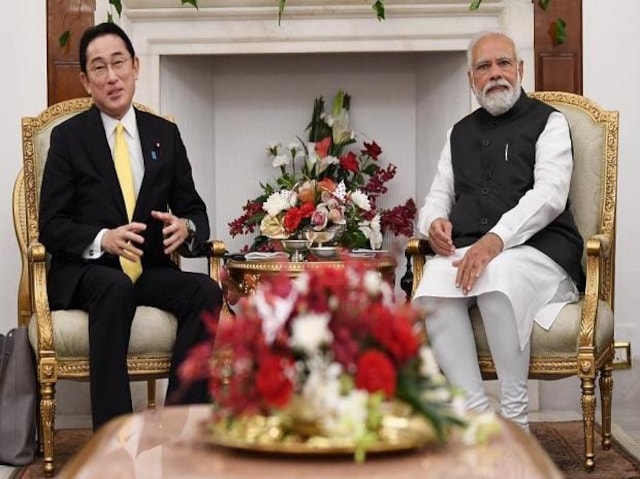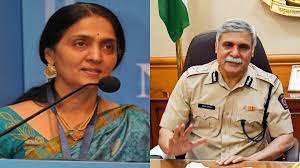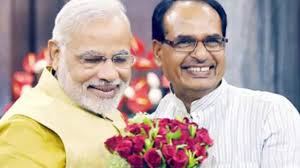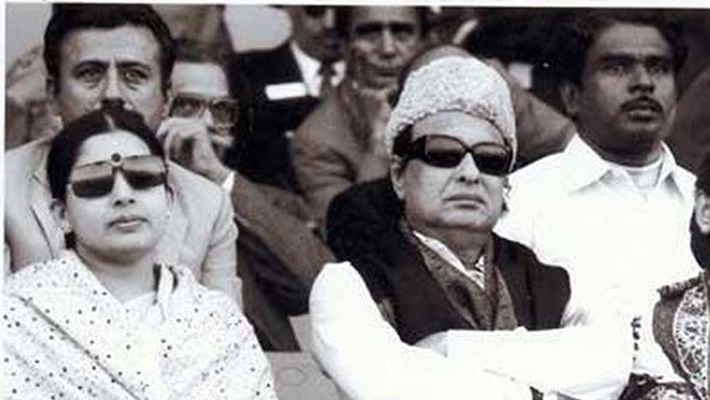Japanese Prime Minister Fumio Kishida on Saturday also announced an investment target of five trillion yen (Rs 3.2 trillion) in India over the next five years after holding talks with his Indian counterpart Narendra Modi on a wide range of issues, including the Ukraine crisis.
The two sides inked six agreements providing for the expansion of bilateral cooperation in a range of areas, besides firming up a separate clean energy partnership.
Japanese Prime Minister Fumio Kishida on Saturday described the Russian invasion of Ukraine as a “very serious” matter, saying it has “shaken” the roots of international order.
Addressing a joint media briefing with Prime Minister Narendra Modi after the 14th India-Japan summit here, Kishida said he has told the Indian leader that one-sided efforts to change status quo by force can’t be allowed in any sphere and the Ukraine matter has to be approached with a ”strong resolve”.
A joint statement said that Modi and Kishida, in their talks, called for an immediate cessation of violence in Ukraine, pitched for resolution of the conflict through dialogue besides underscoring the importance of safety and security of nuclear facilities in that country.
The leaders emphasised that India and Japan, as two leading powers in the Indo-Pacific region, had a shared interest in the safety and security of the maritime domain, freedom of navigation and overflight, unimpeded lawful commerce and peaceful resolution of disputes with full respect.
“They reaffirmed their determination to continue prioritising the role of international law, particularly the United Nations Convention on the Law of the Sea (UNCLOS), and facilitate collaboration, including in maritime security, to meet challenges against the rules-based maritime order in the East and South China Seas,” the statement said.
They emphasised the importance of non-militarisation and self-restraint.
“They further called for the full and effective implementation of the Declaration on the Conduct of Parties in the South China Sea and the early conclusion of a substantive and effective Code of Conduct in the South China Sea in accordance with international law, especially UNCLOS, without prejudice to the rights and interests of all nations including those not party to these negotiations,” it said.
At a joint media briefing, Modi said deepening India-Japan ties will not only benefit the two countries but will help in encouraging peace, prosperity and stability in the Indo-Pacific region.
“We discussed the situation in Ukraine. The Russian attack on Ukraine is a very serious matter that has shaken the basis of the international system. We need to approach the matter with a strong resolve,” Kishida said.
“I told Modi that one-sided efforts to change status quo by force can’t be allowed in any sector. We both agreed on the need for a peaceful solution to all conflicts on basis of international law,” he added.
Referring to bilateral trade ties, he said Japan has an investment target of five trillion yen (Rs 3.2 trillion) in India over the next five years.
“We have announced that in the next five years, we will invest five trillion yen in India and we will further strengthen our cooperation,” Kishida said.
The announcement follows the investment promotion partnership of 2014 when both sides had agreed for Japanese investment of 3.5 trillion yen from 2014 to 2019.
Following the talks, Japan also announced a sustainable development initiative for the Northeastern region.
Foreign Secretary Harsh Vardhan Shringla said at a media briefing that Modi and Kishida have “substantive discussions and outcomes” commensurate with the depths and expanse of India’s engagement with Japan.
In his comments, Modi also said that India and Japan understand the importance of a secure, trusted, predictable and stable energy supply.
The two sides also vowed to expand cooperation in the Indo-Pacific region.
The Japanese prime minister said there is a need to work for a new world order, pitched for reforms of the UN Security Council and called for making the world free of nuclear weapons.
He said both sides will increase defence cooperation and take forward military exercises, adding the next ‘2+2’ foreign and defence ministerial dialogue will be held soon.
Kishida said cooperation in the energy sector will expand.
The Japanese prime minister, accompanied by a high-level delegation, arrived here at around 3:40 pm on his first visit to India as the head of the Japanese government.
He will depart for Cambodia on Sunday morning..
This will be Kishida’s first overseas trip as prime minister since he traveled to Great Britain in November.
Kishida, 64, is the president of the Liberal Democratic Party since 2021.









